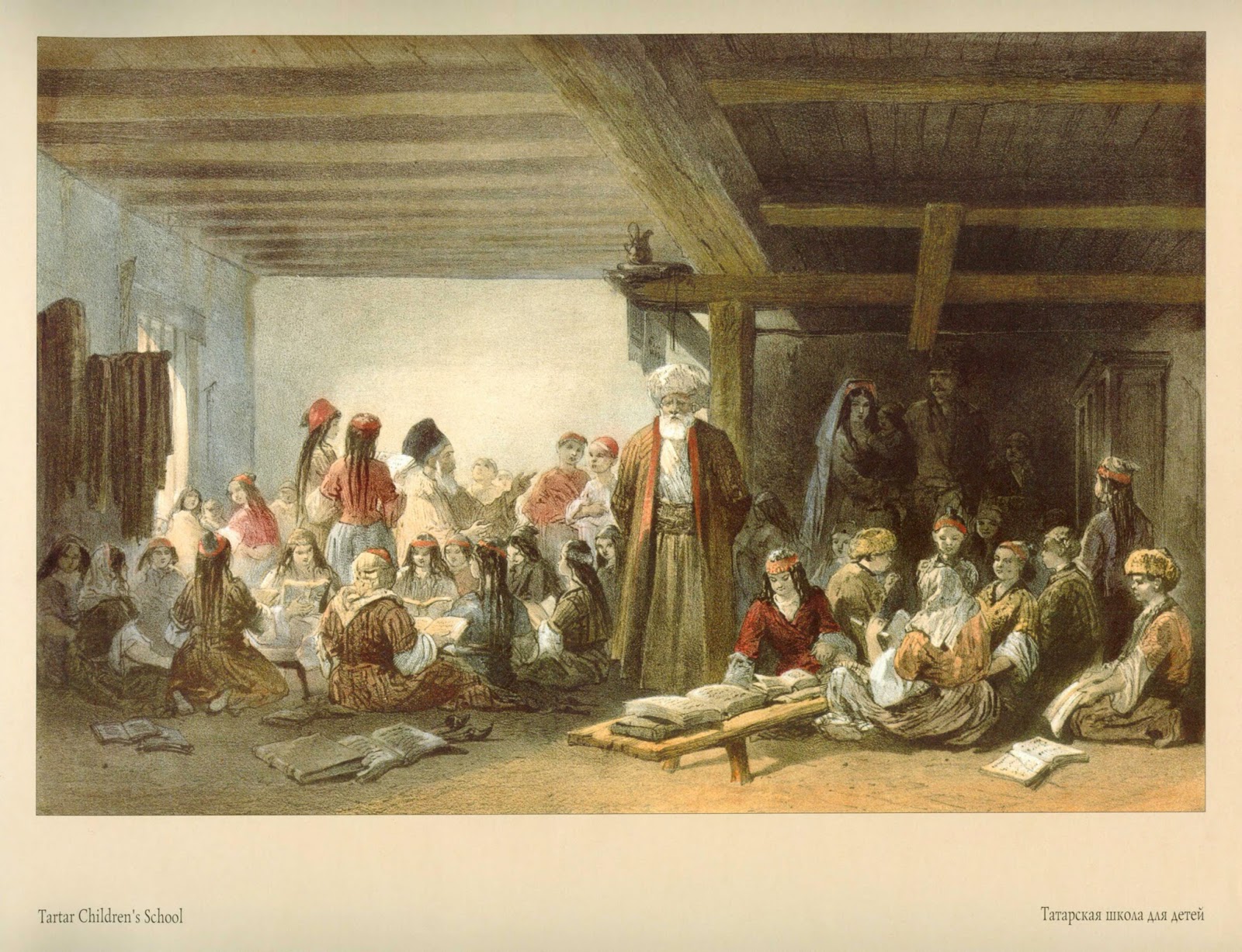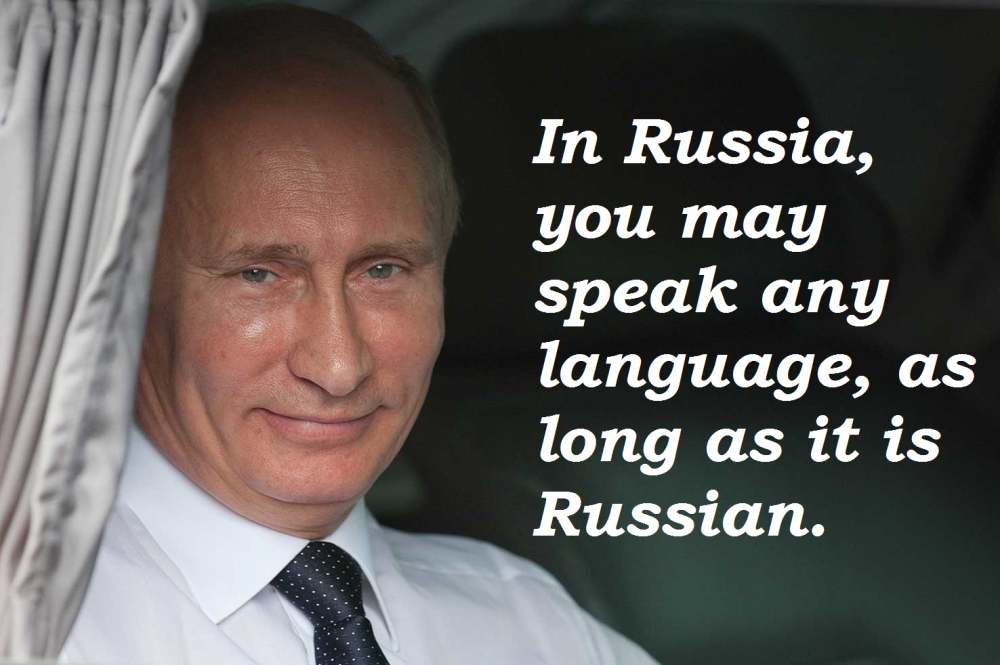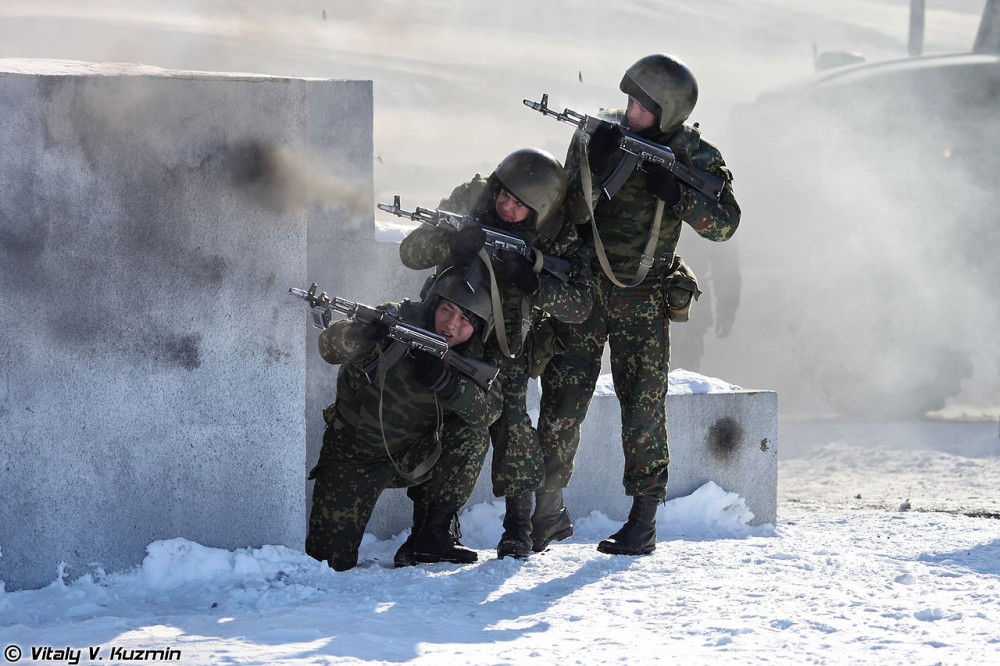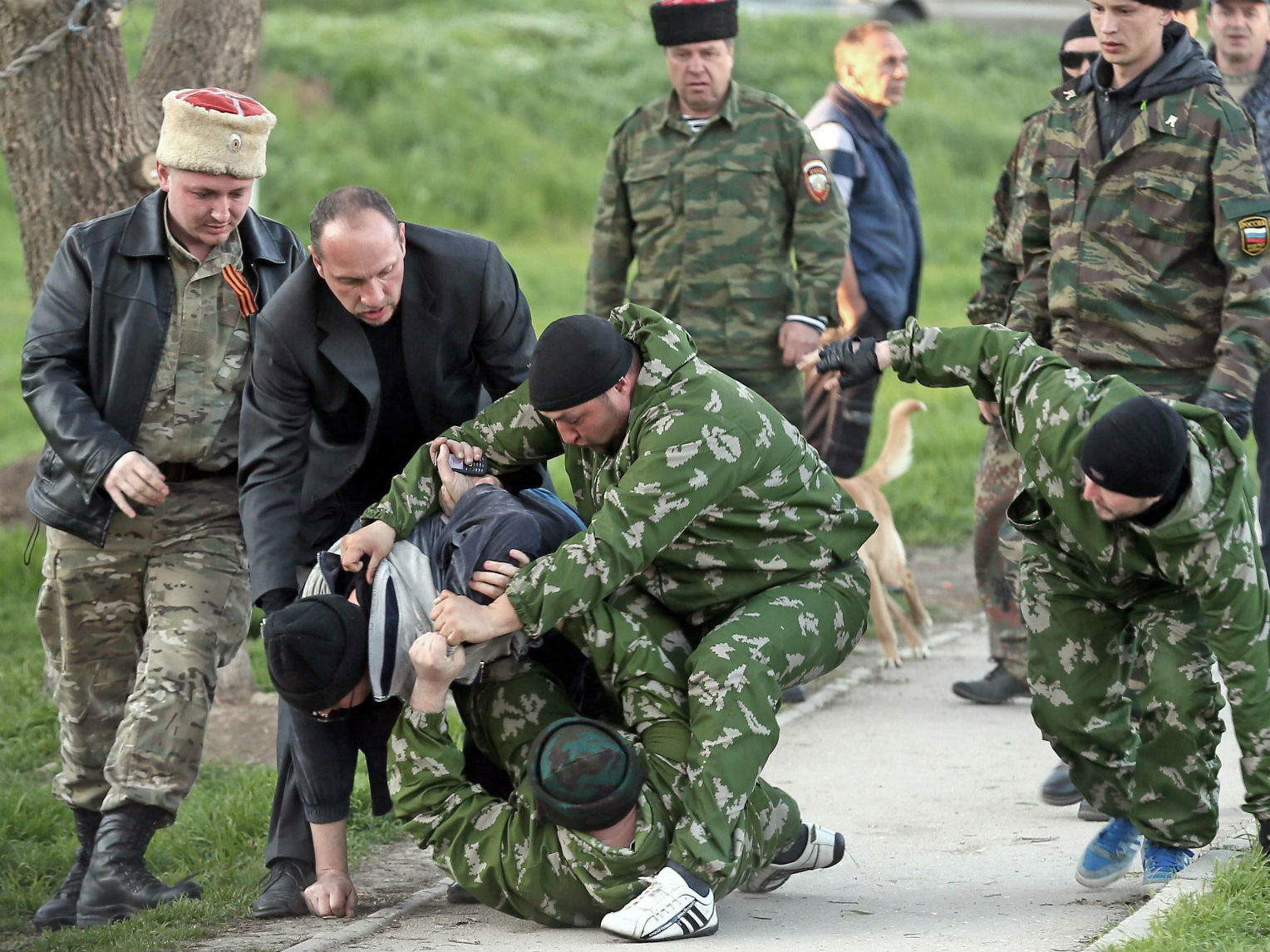The definition of the term indigenous people in the new legislation goes as follows,
“An indigenous people is an autochthonous ethnic community formed on the territory of Ukraine, having its original language and culture, having traditional, social, cultural or representative bodies, identifying itself as an indigenous people of Ukraine, being an ethnic minority in [Ukraine’s] population, and not having its own state formation outside Ukraine.”
Paragraph 2 of the first article of the law says that indigenous peoples of Ukraine “formed on the territory of the Crimean peninsula, are the Crimean Tatars, Karaites, Krymchaks.”
Who are Crimean Tatars, Karaites, and Krymchaks?

The Crimean Tatars are the most numerous of the three. This Turkic-speaking people formed throughout the 13th–17th centuries in the Crimean peninsula from Cumans who emerged in the area in the 10th century with contributions from other ethnic groups of Crimea the time such as Greeks and Goths. Crimean Tatars constituted the largest ethnic population of Crimea up until the end of the 19th century.
In May 1944, shortly after retaking the Crimean peninsula, the Soviet authorities forcefully deported the entire Crimean Tatar population to Central Asia and those deported and their families were banned from entering their homeland up until the collapse of the USSR. And following the annexation of Crimea from Ukraine, Russia has been constantly oppressing the Crimean Tatar minority of the peninsula. There are about 300,000 Crimean Tatars in Ukraine with most of them living in Russian-occupied Crimea.

- Read more on Crimean Tatars on Ukraїner: Crimean Tatars. Who are they?
The Karaites and Krymchaks are two small Turkic-speaking Jewish ethnoreligious communities of Crimea. Karaites are adherents of Karaite Judaism while Krymchaks profess Rabbinic Judaism. There are only slightly more than 1,000 Karaites in Ukraine with around 700 in Crimea. Krymchaks are even less numerous: according to the results of the Ukrainian census of 2001, there were only about 500 Krymchaks in Ukraine.
- Read more on Karaites on Ukraїner: Karaites of Ukraine. Who are they?
What the law on indigenous peoples is about
The law ensures that these three peoples can enjoy, collectively and individually, all cultural, education, linguistic, and other rights under Ukraine’s Constitution and legislation. They have the right to “the full enjoyment of all human rights and fundamental freedoms” defined in various international documents, including еру UN Declaration on the Rights of Indigenous Peoples.
The law also guarantees that the indigenous people can’t be deprived of their identity, evicted or forcefully relocated from their lands, forcefully assimilated, or be a target to inciting racial, ethnic, religious hatred against them.
All factions of the Parliament voted for the bill, except for the pro-Russian Opposition Platform for Life.
The law irks Russia
The bill caused a massive political outcry in Russia as this piece of legislation doesn’t recognize Russians as Ukraine’s indigenous people, despite the fact that Russians by definition can’t fall within the scope of the act since this nation has its own state formation outside Ukraine.
Almost a month ago when the bill was introduced, the State Duma of the Russian Federation adopted a resolution saying that the Russian Federation condemns this Ukrainian bill for not mentioning Russians. Meanwhile,
Russian President Vladimir Putin traditionally resorted to making up some non-existing Nazi parallels as he compared the legislative initiative of President Zelenskyy with the “ideas of Nazi Germany” speculating that the bill divides people into “indigenous, first-class and second-class people and so forth.” By the end of the month, the Russian leader called the law “a weapon of mass destruction” as, for some reason, it’s going to lead to a general reduction in the overall number of Russians.
“It should be stressed that this is conscious manipulation since Putin cannot be unaware of the fact that, according to Russian legislation, Russians could not possibly be considered an indigenous people of Ukraine, nor Ukrainians an indigenous people of the Russian Federation,” says Halya Coynash of Kharkiv Human Rights Protection Group.
Meanwhile, on 1 July, the Russian delegation to the Parliamentary Assembly of the Council of Europe (PACE) protested Ukraine’s adoption of a law on indigenous peoples by the Verkhovna Rada in its statement, according to the delegation’s head Pyotr Tolstoy, supported by “deputies from Serbia, Armenia, Hungary, and Moldova.” In his comment, Tolstoy, who’s also the State Duma Vice Speaker, stated that the Ukrainian law envisages “segregation.”
It’s not about Russians
Ironically, human rights activists have a whole list of Russia’s indigenous peoples who have already disappeared due to oppression by the state authorities, says Mykola Semena of Krym.Realii,
“But in Ukraine, this law guarantees exactly what was not being done in Russia to help indigenous peoples,” according to Semena.
The answer to why the law infuriates official Russia so much is rather simple: the law maintains the rights of three peoples mostly pertaining to the Crimean peninsula which has been occupied by Russia since 2014.
Ukrainian MP Refat Chubarov, the head of the Mejlis of the Crimean Tatar people – the organization banned by Russia shortly after its occupation of Crimea, noted that the Ukrainian law on indigenous peoples
“completely shatters the Kremlin myths about ‘Russian staples’ on Crimean soil, thus drawing the liberation of Crimea from Russian invaders nearer.“
Read also:
- In proposed law, Zelenskyy says Crimean Tatars “indigenous people of Ukraine” but Russians aren’t
- Indigenous leader accuses Russia of ethnocide at UN Forum
- Ten things about the Crimean Tatar deportation you always wanted to know, but were afraid to
- Win for Ukraine as PACE adopts strong resolution in support of Crimean Tatars persecuted by Russia
- The myth of “historically Russian Crimea”: colonialism, deconstructed
- Crimean Tatars’ return from deportation documented by project on Ukraine’s wild 90’s | WATCH ONLINE








